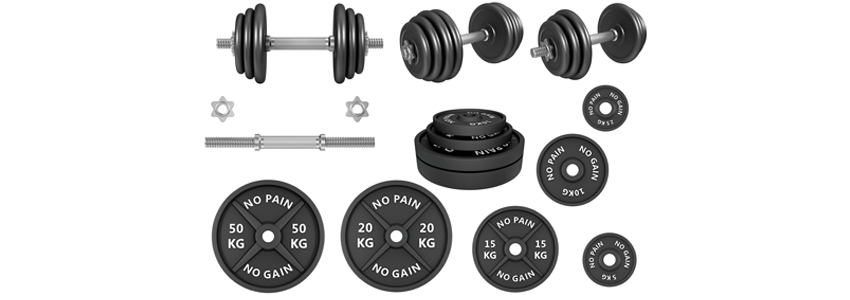The Impact of Food Allergies and Sensitivities on Fitness
10 October 2024
Hello Ziddis! Whether you are focusing on building your body, getting slimmer or becoming fitter, food plays a super important role. For athletes and fitness enthusiasts especially, nutrition is a non-negotiable. But what happens when food allergies come into the picture and restrict our dietary intake? Let us understand what food allergies are, how to understand them, and their impact on fitness better.
Common Food Allergens and Sensitivities
When discussing food allergies, some food items can trigger unfavorable reactions in our bodies. Common triggers are dairy, gluten, nuts, shellfish, soy or eggs. These allergy triggers can cause a reaction that leads to itches, bloating, diarrhoea or even choking which can adversely affect our body. This not only impacts our performance and fitness streak but also our health and well-being.
Food sensitivities like lactose intolerance, gluten sensitivity and so can are not always the main cause for the immediate allergic reaction but a trigger to cause the issues and the body to misbehave. Identifying what food causes triggers in your body is very important to make sure your sensitivities are dealt with well and do not impact your athletic performance.
How Food Allergies Impact Athletic Performance
Food allergies do not directly impact athletic performance but cause degradation on various levels.
- The allergic reactions are followed by swelling, rashes or upset stomach which can break your fitness streak
- These reactions can also affect the training
- Long-term exposure to such triggers without understanding their impact on your body can cause chronic inflammation, the need for more recovery time, loss of stamina or fatigue.
- These allergies can cause athletes to skip certain products which can enhance their performance
- The allergic reactions also reduce the body’s ability to absorb nutrients.
Food Allergy Testing and Sensitivity Management
To understand what you are allergic to you need to get tested for the allergies. This helps manage the sensitivity of those foods to your body and gives you a map of what to avoid.

Take These Steps to Understand What You are Allergic To:
- Step 1: Take a food allergy test. You can get this done at hospitals or consult a nutritionist to guide you to a trusted source to do the food allergy test.
- Step 2: Understand the results of the allergy test. Consult a doctor if needed to understand what you are allergic to and why.
- Step 3: Understand any underlying reasons for this allergic reaction. Eg, if ice cream causes stomach issues it could be that you are lactose intolerant and would need to stop having dairy products completely.
- Step 4: Eliminate the triggering foods from your diet and home.
- Step 5: Remember those triggers and rework your diet and pantry planning
- Step 6: If those food items that trigger allergies in you are nutrition-rich, try to find their alternatives. Eg, you can have vegan milk instead of dairy or tofu instead of paneer.
- Step 7: Consult a nutritionist as to how to get more nutrition for your workout and training despite the allergies.
Strategies to Manage Food Allergies and Improve Performance
Managing food allergies is not all fun and definitely not a cakewalk. It takes a lot to still peak your performance when the food you are allergic to is the food that can give you the best nutrition. But some strategies can help.
- Plan Well: When you know your allergies you can understand what to avoid and what to replace them with. Read the labels carefully for any allergy triggers in the product.
- Hydrate with Electrolytes: Hydration is important no matter your allergies but when you have an allergic reaction like diarrhoea, your body loses vital minerals. So simply hydrating is not enough, you need to add some electrolytes to the water to make sure you make up for the loss and pace up the recovery
- Incorporate Supplements: When you need to avoid certain food items turn to supplements to replace them. If you need to have more nutrition to burn fat, supplements like L Carnitine can help in fat metabolism and energy production.
Takeaway
Food allergies and sensitivities can have a significant impact on athletic performance, from causing an allergic reaction in the stomach to reducing endurance. Understanding how allergies affect your body and using food allergy testing or a food intolerance test to identify triggers is key to managing them. With the right strategies like adjusting your diet, staying hydrated with electrolytes, and supplementing allergy triggers with similarly nutritious but non-triggering food items you can manage these sensitivities and continue achieving your fitness goals without compromise.









 100% Safe & Secure payments:
100% Safe & Secure payments:




